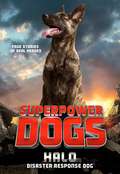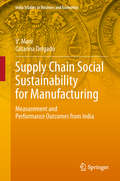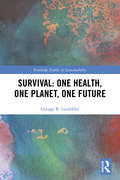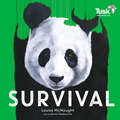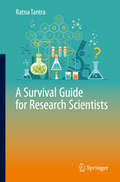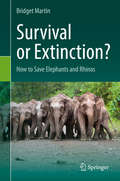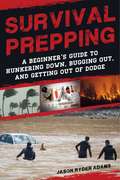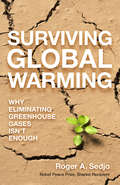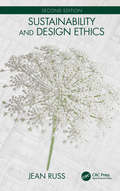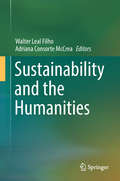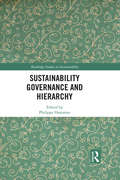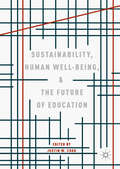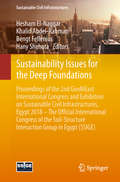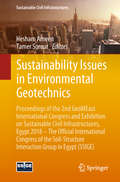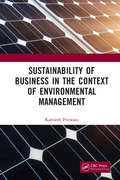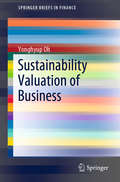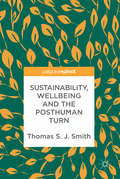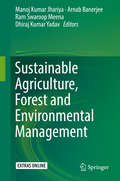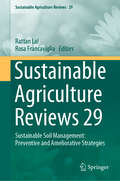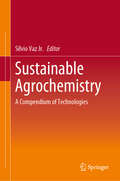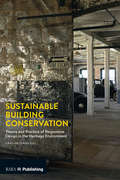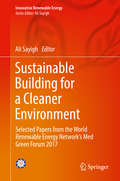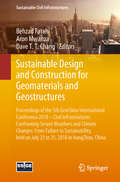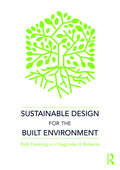- Table View
- List View
Superpower Dogs
by CosmicMeet the real-life superheroes who walk--and bark--among us in this stunning photographic picture book featuring the stars of the IMAX film Superpower Dogs! Every single day, dogs around the world use their amazing abilities to help save lives. In over fifty dynamic photos and a fun, fact-filled text, meet some of the incredible canines who save lives, fight crime, and help people heal. Superpower Dogs is a fun and inspiring read for animal lovers of all ages, celebrating the remarkable work of heroic dogs.
Superpower Dogs: Disaster Response Dog
by CosmicJoin Halo, one of the stars of the IMAX film Superpower Dogs, as she emBARKS on a journey to become a disaster response dog in this gripping nonfiction story, perfect for fans of Max! Dutch Shepherd puppy Halo has spent almost her whole life preparing for one job: finding people who are trapped in disaster zones. Her bond with her human partner, Fire Captain Cat, is unshakeable, and together, they can overcome any obstacle. But training to be an Urban Search and Rescue dog is tough, and it's going to take all of Cat's dedication and Halo's courage to succeed. Enhanced with breathtaking photographs and amazing canine facts, this true story of a hero's journey from adorable puppy to skilled Urban Search and Rescue dog is proof that real life superheroes walk--and bark--among us.
Supply Chain Social Sustainability for Manufacturing: Measurement and Performance Outcomes from India (India Studies in Business and Economics)
by V. Mani Catarina DelgadoThis book highlights a number of social sustainability issues at different stages of the supply chain, and demonstrates how these issues can be addressed by adopting social sustainability practices in the manufacturing supply chain. In the wake of emerging social issues in developing countries, research on social sustainability has gained importance for academics and practitioners alike. The three distinguishable social sustainability dimensions in manufacturing that emerge as a result of this research provide insights for supply chain managers and practitioners who might otherwise be unaware of what constitutes social sustainability. A better understanding allows supply chain managers to address these issues more appropriately to increase their supply chain competitiveness in the market. The book presents a social sustainability scale that can be used by practitioners to measure supply chain social sustainability to benchmark their supply chains globally. The research also helps academicians to gain an understanding of the social issues related to the manufacturing supply chain, while the social measures developed serve as reference material for policy-makers and sustainability experts in emerging economies.
Survival: One Health, One Planet, One Future (Routledge Studies in Sustainability)
by George R. LueddekePlanet Earth has been here for over 4.5 billion years but in just two human generations we have managed to place our only 'home' at great risk. Many lessons from history have not yet been learned and new lessons may prove equally, if not more, difficult to take on board as we head deeper into the twenty-first century. This book highlights two of our greatest social problems: changing the way we relate to the planet and to one another, and confronting how we use technology (dataism) for the benefit of both humankind and the planet. Covering a wide range of key topics, including environmental degradation, modern life, capitalism, robotics, financing of war (vs peace) and the pressing need to re-orient society towards a sustainable future, the book contends that lifelong learning for sustainability is key to our survival. The author argues that One Health - recognising the fundamental interconnections between people, animals, plants, the environment - needs to inform the UN-2030 Sustainable Development Goals and that working towards the adoption of a new mindset is essential. We need to replace our current view of limitless resources, exploitation, competition and conflict with one that respects the sanctity of life and strives towards well-being for all, shared prosperity and social stability. Clearly written, evidence based and transdisciplinary - and including contributions from the World Bank, InterAction Council, Chatham House, UNESCO, World Economic Forum, the Tripartite One Health collaboration (UN Food and Agriculture Organization, World Organisation for Animal Health and World Health Organization), One Health Commission and more - this book cuts across sociopolitical, economic and environmental lines. It will be of great interest to practitioners, academics, policy-makers, students, nongovernment agencies and the public at large in both developed and developing nations.
Survival: Are You Tough Enough? (White Wolves Non Fiction)
by Anna Claybourne Louise McNaughtFrom the rainforest to the savannah to the depths of the ocean, animal life in every continent and habitat has been affected by human activity. Louise McNaught's powerful animal portraits bring to life 20 stunning creatures and their fight for survival. Discover the dangers they face, the action being taken to protect them, and their vital importance on Earth.Be inspired to join the movement to conserve species and find out how you can make a difference.
A Survival Guide for Research Scientists
by Ratna TantraResearch scientists play a pivotal role in society. Their passion for science will drive them forward, leading to new discoveries that will ultimately make the world a better place. Unfortunately, as the professional environment becomes more and more competitive, research scientists today cannot just rely on technical knowledge to carve successful careers. Besides technical skills, they will need to acquire other skills, such as how to communicate their science to the outside world. A Survival Guide for Research Scientists is a one-stop-shop that will help you to develop those core skills not often taught at school or university. The book has been written by an author with more than 20 years of scientific research experience (across different scientific disciplines). She has not only been a research scientist but also a writer, a consultant, a sole-trader and a project manager. A Survival Guide for Research Scientists takes on a holistic approach in order to help you pave the way for success. As such, it features practical guidelines on how to: • conduct your scientific research (how to: do literature review, design experiments, adopt best practice, ensure health and safety, etc.).• write and edit (reports, bid proposals, peer review publications, etc).• interact with the outside world (be a team leader, manage a project, network, deal with difficult people, do presentations, organise meetings, etc.).• look after your career (and get your dream job). • look after yourself (and how to manage stress). • look for a job (develop your CV, prepare for interviews, etc.). • become self-employed (and achieve business success). • deal with redundancy (and move forward in life, etc) Whatever your scientific background may be, this book is the perfect accompaniment, to guide you at every stage of your career.
Survival or Extinction?: How to Save Elephants and Rhinos
by Bridget MartinWritten with passion for anyone interested in seeing an end to the illegal trade in elephant ivory and rhino horn, this book shows how, by working together, people all over the world who care about these animals are gradually bringing about change for the better. It takes an overview of how the current situation came to pass by exploring poaching and its devastating consequences and the pivotal role of organized crime. The discussion of how matters are starting to improve covers the investigation and monitoring of ivory markets, sustainable uses and the key role of local communities.Enforcement of the law is vital in this story. Enter the enforcers, the technology they use to defeat the poachers and the evidence they require to prosecute offenders. Cases, some deeply shocking, are included, as well as a number of fascinating case studies, while the exploits of organized crime gangs make lively, as well as disturbing reading. Throughout the message is clear. We can and must save these animals from extinction.
Survival Prepping: A Guide to Hunkering Down, Bugging Out, and Getting Out of Dodge
by Jason Ryder AdamsFood, Water, First Aid, and Self-Defense Tips for Surviving Natural Disasters, Extreme Weather, Pandemics, Biological Threats, Terrorist Attacks, and Riots It could be a fire, flood, hurricane, tornado, or hailstorm. Financial system collapse or bioterrorism. Governmental shutdown or societal breakdown. The world is full of possible threats, and they seem to be coming at us from all sides these days. Jason Ryder Adams covers everything you need to know prepare your home, keep your family safe, and get ready to leave if the worst happens. You’ll learn how to: Prep with children and pets (and do test runs ahead of time)Plan for staying put, sealing yourself in, and leaving depending on the threatChoose and protect a safe location and develop an escape routeDefend your family with self-defense training and firearmsPut together a 72-hour emergency kit, bug-out bag, and first aid kit So don’t panic—prepare! Prepping today is for everyone. Survival Prepping is written for ordinary folks who want to get started on preparing for the worst. Adams shares bug-out plans for every scenario, safety tips, and invaluable checklists for acquiring the right supplies for emergency situations. Survival Prepping will help you ensure your family survives—and hopefully thrives—should a disaster strike.
Surviving Global Warming: Why Eliminating Greenhouse Gases Isn't Enough
by Roger A. SedjoThis provocative and important overview of the challenges of and possible approaches to climate change by an expert and shared recipient of a Nobel Peace Prize is essential reading for policy makers, climate scientists, and lay persons alike.Though the Paris Agreement on climate change was a significant achievement, most authorities agree that its measures to reduce greenhouse-gas emissions will be insufficient to offset the forecasted increase in global warming. Even in the unlikely case of ideal compliance, the Earth will still experience major climate-driven damages. Given this reality, climate expert Roger A. Sedjo argues in this book that a Plan B is required. He makes a compelling case that doing more of the same, by focusing only on the mitigation plan of the Paris Agreement, will leave humanity increasingly vulnerable; instead, we must also begin planning adaptation strategies--Plan B--which enable societies to anticipate and protect against the worst effects of inevitable climate change. The author examines several areas where environmental damage could be severe. Sea-level rise is a major concern and measures could be, and in some cases are now being, undertaken to protect coastal areas. The author also addresses the need for more robust action to ward off the likely decline in agricultural productivity, destruction of forests and biodiversity, and the impact of natural catastrophes like hurricanes made worse by climate change. In addition, he considers geo-engineering strategies, such as atmospheric reflectivity, which may play a role in lessening the impact of global warming.
Sustainability and Design Ethics
by Jean Russ<p>Sustainability as a concept remains just as challenging and important today as it was when the first edition of this book was published. The Second Edition of Sustainability and Design Ethics explores the ethical obligations of knowledgeable people such as design professionals, taking into consideration the numerous changes that have taken place in recent years. This book expands the growing discussion on the principles of sustainability to further include the role of businesses and governments and considers the general recognition that modern society has occurred at the expense of nature with significant social and environmental impacts. <p>Are there limits to the individual’s ethical obligation? How do such obligations change or adapt to a world of sustainable design? As the shift toward sustainability proceeds, designers’ ethical underpinnings will be confronted with a wider range of people and concerns whose interests must be weighed. The design professionals are likely to be among the lead in the shift toward sustainability because of the special knowledge and expertise provided to them by their education, experience, and distinctive position in society. The entire world of design is being reassessed and the guiding principles and ethics of design reflect this change. <p>New to the Second Edition: <p> <li>Expanded international scope that includes a comparison of professional organizations in the EU, Australia, Canada, Japan and China <li>Discusses how cultural differences between the West and China result in different underlying foundations for professional ethics <li>Revised analyses to reflect changes in regulatory and technical areas such as the inevitable rise of artificial intelligence in design <li>Updated arguments reflecting the need for sustainability and the designer's role and obligations <li>Updated references pertaining to the progress of sustainable design and development</li> <p>Sustainability and Design Ethics, Second Edition is an attempt to explore the ideas and principles that might contribute to the thinking of thoughtful design professionals. The emergence of "green" design discussed in this book is used to evidence progress, but also to demonstrate the degree to which more is needed.</p>
Sustainability and the Humanities
by Walter Leal Filho Adriana Consorte McCreaThis book explores the strong links between sustainability and the humanities, which go beyond the inclusion of social sciences in discussions on sustainability, and offers a holistic discussion on the intellectual and moral aspects of sustainable development. The contributions from researchers in the fields of education, social sciences, religion, humanities, and sustainable development fulfill three main aims:They provide university lecturers interested in humanities and sustainable development with an opportunity to present their work;foster the exchange of information, ideas and experiences acquired in the execution of teaching and research; anddiscuss methodological approaches and projects that provide a better understanding of how the humanities can contribute to the debate on sustainable development. Prepared by the Inter-University Sustainable Development Research Programme and the World Sustainable Development Research and Transfer Centre, the book reiterates the need to promote integrated approaches to sustainable development. Including practice-based lessons learnt that can be replicated further, it is a valuable resource for scientists and practitioners working in the humanities and sustainable development.
Sustainability Governance and Hierarchy (Routledge Studies in Sustainability)
by Philippe HammanSustainability Governance and Hierarchy provides a solid, theoretically and empirically grounded reflection on the concept of "sustainability governance". This idea has been growing in popularity in social science literature, as well as among decision-makers and governance actors, as it brings together two vast fields of study that have sometimes been dismissed as vague or ideologically loaded. In order to link the concepts of "sustainability" and "governance", the book is organized around the exploration of hierarchy issues, which often lie in the background of the existing literature but are not the focus of analysis. The chapters reflect ongoing controversies and dialogue between scientists with different theoretical and thematic backgrounds, who are all willing to participate in and contribute to a constructive effort to reach a more inclusive and more theoretically relevant stage for sustainability studies, being content with merely global analyses. The book is an innovative contribution to the hierarchy/non-hierarchy debate regarding governance arrangements in the field of sustainability and sustainability studies. This book will be of interest to advanced students and scholars focusing on governance issues, sustainability studies, environmental studies, as well as on the methodological aspects of the social sciences (economy, geography, law, philosophy, political science, sociology, urbanism and planning).
Sustainability, Human Well-Being, and the Future of Education
by Justin W. CookThis open access book explores the key dimensions of a future education system designed to enable individuals, schools, and communities to achieve the twin twenty-first century challenges of sustainability and human well-being. For much of the twentieth century, Western education systems prepared students to enter the workforce, contribute to society and succeed in relatively predictable contexts. Today, people are at the controls of the planet—making decisions that are dramatically reshaping social, economic, and environmental systems at a global scale. What is education’s purpose in this new reality? What and how must we learn now? The volatility and uncertainty caused by digitalization, globalization, and climate change weave a common backdrop through each chapter. Using case studies drawn from Finland and the US, chapter authors explore various aspects of learning and education system design through the lenses of sustainability and human well-being to evaluate how our understanding and practice of education must transform. Using their scholarly research and experience as practitioners, the authors propose new approaches to preparing learners for a new frontier of the human experience fraught with risks but full of opportunity.
Sustainability Issues for the Deep Foundations: Proceedings of the 2nd GeoMEast International Congress and Exhibition on Sustainable Civil Infrastructures, Egypt 2018 – The Official International Congress of the Soil-Structure Interaction Group in Egypt (SSIGE) (Sustainable Civil Infrastructures)
by Hesham El-Naggar Khalid Abdel-Rahman Bengt Fellenius Hany ShehataThis volume presents some advances in the analysis and design of deep foundations. It contains 21 technical papers covering various aspects of analysis and design of deep foundations based on full-scale field testing, numerical modeling and analytical solutions. They present results and findings from research as well as practical-oriented studies on deep foundations that are of interest to civil/geotechnical engineering community. The topics cover a wide spectrum of applications that include evaluation of the axial and lateral capacity of piles, pile group effects, evaluation of the increase in pile capacity with time (or pile setup), influence of excavation on pile capacity, study the behavior of pile raft caisson foundations, evaluation of the bearing capacity and settlement of piles from cone penetration tests, etc. The volume is based on the best contributions to the 2nd GeoMEast International Congress and Exhibition on Sustainable Civil Infrastructures, Egypt 2018 – The official international congress of the Soil-Structure Interaction Group in Egypt (SSIGE).
Sustainability Issues in Environmental Geotechnics: Proceedings of the 2nd GeoMEast International Congress and Exhibition on Sustainable Civil Infrastructures, Egypt 2018 – The Official International Congress of the Soil-Structure Interaction Group in Egypt (SSIGE) (Sustainable Civil Infrastructures)
by Hesham Ameen Tamer SorourThis edited volume deals with the attempts made by the scientists and practitioners to address contemporary issues in geoenvironmental engineering such as characterization of dredged sediments, geomaterials and waste, valorization of waste, sustainability in waste management and some other geoenvironmental issues that are becoming quite relevant in today's world especially in view of the high urbanization rates, advancement in technologies, and changes in consumption behavior of people. In this regard, wastes generated through the daily activities of individuals and organizations pose many challenges in their management. The volume is based on the best contributions to the 2nd GeoMEast International Congress and Exhibition on Sustainable Civil Infrastructures, Egypt 2018 – The official international congress of the Soil-Structure Interaction Group in Egypt (SSIGE).
Sustainability of Business in the Context of Environmental Management
by Kamlesh PritwaniSustainability of Business in the Context of Environmental Management studies the newly emerged concept of ‘sustainable business’ in view of the growing Indian economy. It explores the current corporate social responsibility practices adopted with special reference to environmental management in Indian companies. The book compares the legal, financial, economic, industrial, and social behavioural aspects. Out of these aspects, industrial aspect in view of ‘environmental management’ is discussed in detail. It also explores the forces driving the changing relationship between business and society and corporate leadership reacting to environmental challenges. Finally, the book restates the concept of increasing profitability through societal development. Please note: This volume is Co-published with The Energy and Resources Institute Press, New Delhi. Taylor & Francis does not sell or distribute the Hardback in India, Pakistan, Nepal, Bhutan, Bangladesh and Sri Lanka
Sustainability Valuation of Business (SpringerBriefs in Finance)
by Yonghyup OhThis book discusses the concept of sustainability valuation, a method in which corporate social responsibility (CSR) among other factors is embedded in the cash value of a given firm. It proposes a new, holistic way of representing sustainability in a theoretical framework, and discusses the role of policy in determining a firm’s cash value. Moreover, it addresses the method’s potential, the challenges involved in its practical application, and how it can be adapted to specific cases. By shaking up the field of firm valuation in an era characterized by global sustainable development, the book makes a valuable contribution to the available literature on finance, sustainability science, and policymaking.
Sustainability, Wellbeing and the Posthuman Turn
by Thomas S. SmithThis book examines how the way we conceive of, or measure, the environment changes the way we interact with it. Thomas Smith posits that environmentalism and sustainable development have become increasingly post-political, characterised by abstraction, and quantification to an unprecedented extent. As such, the book argues that our ways of measuring both the environment, such as through sustainability metrics like footprints and Payments for Ecosystem Services, and society, through gross domestic product and wellbeing measures, play a constitutive and problematic role in how we conceive of ourselves in the world. Subsequently, as the quantified environmental approach drives a dualistic wedge between the human and non-human realms, in its final section the book puts forward recent developments in new materialism and feminist ethics of care as providing practical ways of re-founding sustainable development in a way that firmly acknowledges human-ecological relations. This book will be an invaluable reference for scholars and students in the fields of human geography, political ecology, and environmental sociology.
Sustainable Agriculture, Forest and Environmental Management
by Manoj Kumar Jhariya Arnab Banerjee Ram Swaroop Meena Dhiraj Kumar YadavThe recent technologies for sustainable development and maintaining ecological integrity in the field of agriculture, forestry and environmental management for the green future. Describes the recent technologies and issues to generate awareness among the global scientific community towards sustainable development.Covers various eco-friendly approaches for successful management of soil, water, forest, agriculture, and other natural resources. Addresses the policy issues promoting conservation, protection and management of various natural resources. Presents the issues of climate change and sustainable strategies to combat such a mega event. The existence of life on the earth primarily depends upon the agriculture, forest and environment. The changing climate is imposing the multifaceted challenges in front of human civilization. The agroecosystem management practices and technologies leads to higher productivity with destruction of agricultural, forest and environmental habitat leading to soil-water-air pollution. Food and Agriculture Organization (FAO) plays a key role in the promoting research and developmental activities in various sectors to achieve the sustainable development goals under 2030 agenda. Gradual growth of science and technology has imposed a significant pressure on the different ecosystem. In this context, approaches such as sustainable agriculture, forestry and eco-friendly technologies need to be address across the world. Keeping view of these facts this book underlines scientific chapters dealing with the issues with proper explanation, and accompanied by illustrative diagrams, tables, database as required. The editors have tried to provide a brief scenario about the current issues related to the agriculture, forestry and environment. Therefore, the book would be a very useful resource for academicians, scientists, and policy makers of the related field.
Sustainable Agriculture Reviews 29: Sustainable Soil Management: Preventive and Ameliorative Strategies (Sustainable Agriculture Reviews #29)
by Rattan Lal Rosa FrancavigliaThis book addresses the threats that hamper the achievement of sustainable soil management: soil erosion by water and wind, soil organic carbon loss, nutrient imbalance, salinization, contamination, acidification, loss of soil biodiversity, surface sealing, compaction and water logging. The specific focus is on preventive and ameliorative strategies for sustainable soil management.
Sustainable Agrochemistry: A Compendium of Technologies
by Sílvio Vaz Jr.This book presents a broad range of technologies for sustainable agrochemistry, e.g. semiochemicals for pest management, nanotechnology for release of eco-friendly agrochemicals, and green chemistry principles for agriculture. It provides a concise introduction to sustainable agrochemistry for a professional audience, and highlights the main scientific and technological approaches that can be applied to modern agrochemistry. It also discusses various available technologies for reducing the negative impacts of agrochemicals on the environment and human health.
Sustainable Building Conservation: Theory and Practice of Responsive Design in the Heritage Environment
by Oriel PrizemanThis book incorporates UK and international case studies and essays to identify the overlaps in the interests of energy and building conservation. The relevance and adjustments of qualitative and quantitative frames of reference are introduced, alongside the various expertise of the contributors: architects, designers, conservation consultants and academics. The second part of the book showcases sustainable domestic and non-domestic heritage projects, translating the preceding research into information that practitioners can use in their everyday work. The book will appeal to architecture students, newly qualified professionals and conservation architects and will enhance readers’ ambitions, so that they feel equipped and inspired to work with old buildings sensitively, creatively and sustainably.
Sustainable Building for a Cleaner Environment: Selected Papers from the World Renewable Energy Network's Med Green Forum 2017 (Innovative Renewable Energy)
by Ali SayighThis book contains selected papers presented during the bi-annual World Renewable Energy Network’s Med Green Forum aimed at the international community as well as Mediterranean countries. This forum highlights the importance of growing renewable energy applications in two main sectors: Electricity Generation and the Sustainable Building Sector. In-depth chapters highlight the most current research and technological breakthroughs, covering a broad range of renewable energy technologies and applications in all sectors – for electricity production, heating and cooling, agricultural applications, water desalination, industrial applications and for the transport sectors.
Sustainable Design and Construction for Geomaterials and Geostructures: Proceedings of the 5th GeoChina International Conference 2018 – Civil Infrastructures Confronting Severe Weathers and Climate Changes: From Failure to Sustainability, held on July 23 to 25, 2018 in HangZhou, China (Sustainable Civil Infrastructures)
by Behzad Fatahi Aron Mwanza Dave T.T. ChangThis book presents recent research findings and critically reviews the existing literature related to assessment of geotechnical structures under complex and extreme loading conditions such as cyclic, seismic and blast loads. Special emphasize is given to experimental assessment of behaviors of soils and rocks in tunneling , while advanced numerical modelling techniques are utilized for modelling and accurate predictions in emerging construction projects such as tunneling and embankments. The book is in line with current trends in civil engineering which are moving towards sustainable design and construction addressing the energy and material challenges. Papers were selected from the 5th GeoChina International Conference 2018 – Civil Infrastructures Confronting Severe Weathers and Climate Changes: From Failure to Sustainability, held on July 23 to 25, 2018 in HangZhou, China.
Sustainable Design for the Built Environment
by Rob Fleming Saglinda H RobertsSustainable Design for the Built Environment marks the transition of sustainable design from a specialty service to the mainstream approach for creating a healthy and resilient built environment. This groundbreaking and transformative approach introduces sustainable design in a clear, concise, easy-to-read format. This book takes the reader deep into the foundations of sustainable design, and creates a holistic and integrative approach addressing the social, cultural, ecological, and aesthetic aspects in addition to the typical performance-driven goals. The first section of the book is themed around the origins, principles, and frameworks of sustainable design aimed at inspiring a deeper, broader, and more inclusive view of sustainability. The second section examines strategies such as biophilia and biomimicry, adaptation and resilience, health and well-being. The third section examines the application of sustainability principles from the global, urban, district, building, and human scale, illustrating how a systems thinking approach allows sustainable design to span the context of time, space, and varied perspectives. This textbook is intended to inspire a new vision for the future that unites human activity with natural processes to form a regenerative, coevolutionary model for sustainable design. By allowing the reader an insightful look into the history, motivations, and values of sustainable design, they begin to see sustainable design, not only as a way to deliver green buildings, but as a comprehensive and transformative meta-framework that is so needed in every sector of society. Supported by extensive online resources including videos and PowerPoints for each chapter, this book will be essential reading for students of sustainability and sustainable design.

